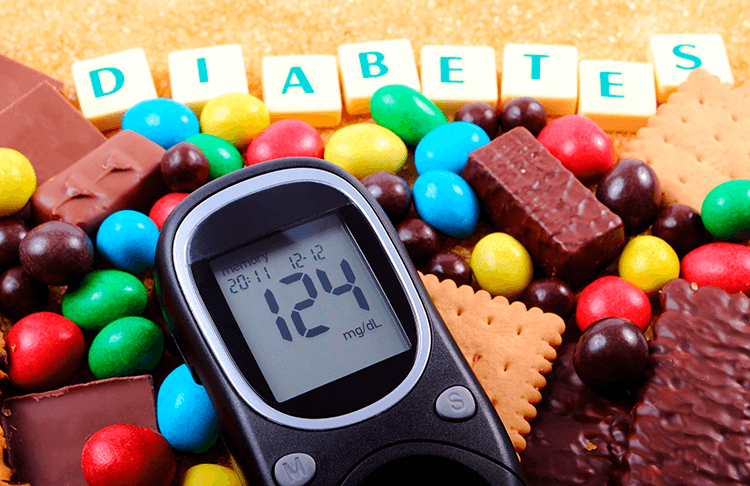
From those symptoms we love to talk about at the water cooler – “Man, am I tired!” to those that we really don’t want anyone else to know – ahem, erectile dysfunction, cough – the signs of diabetes are subtle but serious.
And while diabetes is manageable, it can shorten your life considerably.
It can also up your risk of things like blindness, heart attack, and even loss of a foot. Check out our full list of signs that add up to diabetes and then do the math – a trip to the doctor may be.
1. Fatigue
Sure, lots of things cause fatigue, including the simplest explanation that you’re just not sleeping enough. But fatigue almost always comes along with diabetes because the body is trying and failing to use the fuel that’s put in.
If you find that you’re extra tired after eating, when you should have more energy, that’s a strong sign that diabetes might be present.
2. Excessive hunger and thirst
What happens is that the body is overwhelmed by the task of processing glucose in your bloodstream. Water is pulled out of cells to try and flush away the excess, but in the process, all the important nutrients your body needs, including the glucose itself, are lost.
The result is a cycle of dehydration and hunger that eating and drinking more only perpetuates.
3. Frequent urination
Because water is pulled from all available cells in order to flush away excess glucose, the kidneys get overwhelmed trying to filter and reabsorb it. That means you’ll be running to the toilet way more than usual to eliminate the build-up.
All that peeing can leave the body very dehydrated, not to mention exhausted, because this is a 24/7 problem that will affect your ability to sleep through the night.
4. Yeast infections
Yeast infections most often occur in vaginal tissues, but men aren’t off the hook completely! Yeast feeds on excess sugar, which can be secreted in sweat, urine, and mucus.
Therefore, yeast infections are found almost anywhere on the skin, but especially in places that tend to trap moisture. Add in a compromised immune system and yeast can be difficult to control in diabetic patients.
5. Erectile dysfunction
Erectile dysfunction in men with uncontrolled diabetes likely stems from damage to nerves and blood vessels. Though embarrassing to discuss, erectile dysfunction affects both the sufferer and his partner.
Probably the last thing you need when already feeling crummy from uncontrolled diabetes is an unhappy relationship with your significant other, so put the embarrassment aside and speak to your doctor ASAP.
6. Blurry vision
Diabetes causes blurry vision because your eyes depend on the fluid within and around them to function properly. A dehydrated lens warps and struggles to focus. This condition often resolves upon proper diabetes management.
However, left unchecked, diabetes also causes nerve damage. When new vessels in the back of the eye attempt to form over damaged vessels, it can lead to permanent blindness.
7. Slow healing sores
Have you noticed any cuts or sores that just aren’t going away? Unless you’ve been picking at them, slow healing may indicate diabetes.
Not only is your body’s system for healing compromised by its effort to expel excess glucose, but a bunch of opportunistic infections just love to feed on sugar and will take advantage of its availability.
8. Unexplained weight loss
Being able to eat as much as you want and still lose weight sounds like a dream, right? Actually, it’s more like a nightmare as your body is failing to retrieve fuel from the food you eat and instead burning fat to survive.
That’s not sustainable over the long term, and a sign that diabetes is causing you to starve no matter how much you consume.
9. Nausea and vomiting
When uncontrolled diabetes results in rapid weight loss, your body is burning fat at an unsustainable rate. That process creates ketones, which may build up in your blood at dangerous levels and lead to a potentially fatal condition called diabetic ketoacidosis.
The ketones cause nausea and even vomiting in people with sensitive stomachs.
10. Painful or numb feet and legs
Diabetes leads to hardening of the arteries as well as nerve damage, and these symptoms are quite noticeable in the feet and legs.
Poor blood flow and nerve damage combined can lead to skin ulcers or infections that take a really long time to heal, and because there may also be numbness, you might not realize how badly your feet are suffering.
11. Swollen or tender gums
Diabetes weakens the body’s ability to fight off germs, which, unless you live in a bubble, are absolutely everywhere. Due to its moist environment, sharp teeth surrounded by soft tissues, and all the stuff that gets put in there daily, mouths are especially sensitive to infection.
Seek help right away if your gums are loose, pull away from your teeth, or develop pockets of pus. (We probably didn’t need to tell you that last part.)
12. Weird smelling breath
Halitosis, otherwise known as bad breath, is common in diabetics because they are prone to infection. Inflamed, infected gums cause bad breath and can also affect metabolism, spiking blood sugar even further.
Another source of bad breath related to diabetes comes from the condition ketoacidosis. High levels of ketones in the blood are linked to a sweet, fruity odor on the breath.
13. Frequent UTIs
There is no way to ignore a UTI when you have one. It’s like peeing fire…or tiny knives. One reason diabetics are prone to these painful infections is poor circulation, which makes it harder for white blood cells to get to the infected area.
High blood glucose also raises the risk of infections in general and increases your overall volume of urine. All that sugary liquid in the bladder becomes a breeding ground for infection.
14. Polycystic Ovary Syndrome
This condition is a leading cause of infertility among women who suffer it, and unfortunately, it also frequently leads to insulin resistance.
Up to 50% of women with PCOS will eventually develop diabetes, so your doc will likely recommend a host of lifestyle changes upon diagnosis of PCOS.
15. Skin darkening
Formally called acanthosis nigricans, this symptom involves darkening and thickening of the skin, especially in folds. Sometimes the darkened skin will be slightly raised and velvety in texture. Most often it is found in the armpits, neck, groin, or under breasts.
Doctors consider acanthosis nigricans to be an indication of diabetes and is thought to be related to insulin resistance.
16. Chronic dehydration
Dehydration occurs because high blood glucose causes your body to pull water from cells and be unable to replenish it properly. The need to pee all the time then eliminates that water from your system entirely.
Dehydration is a serious problem that can kill, and at lower levels contributes to all kinds of other issues, including dry skin, poor vision, and painful joints.
17. Irritability/depression
Because the symptoms of diabetes can be vague and seem unconnected, they may spark uneasy emotions that start to feel like the primary concern.
From exhaustion caused by cell starvation to a diminished sex life due to erectile dysfunction or recurring yeast/bladder infections, it stand to reason that irritability and depression may result from uncontrolled diabetes.
Conclusion
Managing your physical health can do a lot to improve mental health.
Please don’t wait any longer to get tested for diabetes. The disease can be controlled – even healed, if caught early enough. And if your tests come back clear, you will have gained valuable peace of mind. Make the call today. Your body, mind, and ahem – sex life – will thank you.
Adapted from: hhdresearch.org



